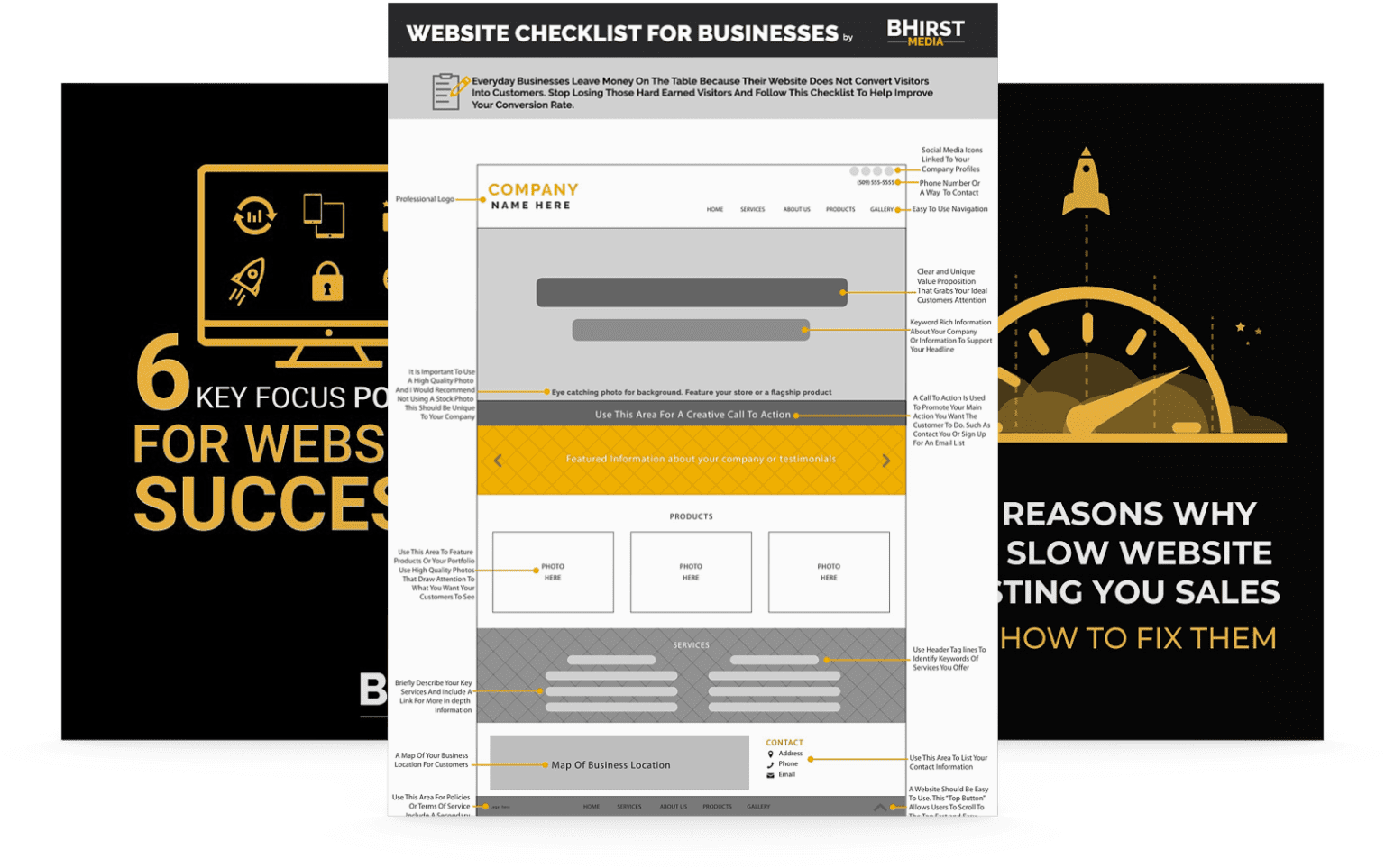
Is your website leaving a lasting impression or driving visitors away due to technical glitches and outdated content? A well-maintained website is vital for the success of any business in the digital age, and keeping your site running smoothly with website technical support can be the key to unlocking its full potential.
Website technical support is essential for a positive user experience, preventing issues and optimizing search engine rankings.
Adopting security measures and regular maintenance tasks are necessary to ensure website safety & accessibility.
Professional help can provide tailored solutions that meet the specific needs of businesses with cost-effective packages from basic to comprehensive.

Website technical support helps prevent technical difficulties, enhances user experience, and guarantees high search engine rankings for your web page. With various forms of regular website maintenance, including site maintenance, available, such as preventing technical issues and optimizing search engine rankings, ongoing maintenance investment is necessary to keep your website up to date, secure, and running smoothly.
While website maintenance might appear as an extra expense, the usual service cost ranges from $50-$200 monthly. Considering the benefits of maintaining website performance, reinforcing security, and ensuring a positive user experience for site visitors, investing in website maintenance is a smart move to save time, money, and potential headaches in the long run.
Frequent issues encountered on websites, such as broken links, slow loading times, and outdated content, can negatively affect your website’s user experience, making it difficult for users to locate your business online and leading to reduced search engine rankings. If your website is an eCommerce platform, problems with product ordering, checkout, and payment processes can have an adverse effect on your site’s performance and sales.
Recognizing and solving these common issues is the initial move towards a website functioning properly and an optimized experience.
Improving website performance can be achieved through various optimization techniques, such as image compression, caching, and code minification. Performance Tune Up is one such service included in WordPress Support Services, designed to increase page loading speed, making it easier for users to gain access to your website’s content.
Maintaining your website’s functionality and optimizing your website’s seo for search engines is necessary to stay ahead in the competitive online environment.

Implementing security measures like SSL certificates, firewalls, and malware scanning is essential to protect your website from potential threats. A proactive approach to security can safeguard your website and its users from potential harm, such as hackers compromising your business and customers’ monetary assets.
Also, website backup is vital to guard against potential data loss and to enable site restoration if it ever gets hacked or corrupted.

Your business’s online presence is only as robust as the constant upkeep of your website. Regular website maintenance tasks include ensuring all online platforms are secure, updating plugins, and backing up website content. Automating uptime monitoring and security scanning ensures these tasks are done consistently.
Google Analytics and Google’s PageSpeed Insights tool are invaluable resources for weekly website maintenance assessments, providing data on website traffic, user activity, and page loading speed. By monitoring these metrics, you can identify areas of improvement and optimize your website’s performance, ensuring it remains accessible, secure, and user-friendly.

Updating website content regularly is vital to maintain relevance, accuracy, and professionalism. Regularly refreshing content can positively influence website SEO, as it signals to search engines like Google that the website is active and frequently updated, which can help boost its rankings. Additionally, it allows for the incorporation of new keywords and optimization for current search trends and user intent, strengthening your website’s visibility in search engine results pages (SERPs).
Keeping plugins and themes up-to-date is essential to ensure compatibility and security for your website. Outdated themes can be slower and less efficient, potentially leading to a decrease in website speed and performance, as well as containing vulnerabilities that can be exploited by hackers.
Regular plugin and theme management, along with weekly WordPress core updates, can help you avoid glitches, conflicts, and crashes, providing a seamless experience for your website users.
Implementing regular website backups and disaster recovery plans can minimize data loss and downtime. Daily offsite backups are conducted with some WordPress Support Services for added peace of mind. Backups not only protect your website’s valuable data but also ensure that your site can be quickly restored in case of a security breach or technical issue.

Emergencies can happen at any time, and when they do, having a reliable team of experts to address and resolve website issues efficiently is invaluable. Whether it’s a server crash, security breach, or critical error, you need prompt assistance and expert support to minimize downtime and restore your website’s functionality.
Prompt assistance for critical website problems, such as hacking or server crashes, is crucial to minimize the impact on your business and customers. Technical support teams can diagnose the issue, determine the optimal solution, and restore your website’s functionality as quickly as possible.
Accessing a team of skilled professionals to address and resolve website issues efficiently is essential for any business. An expert team can provide you with the support you need when it matters most. They have:
Strong technical skills in web development and troubleshooting
Knowledge of various content management systems and web hosting platforms
Experience in handling website emergencies
With these capabilities, they can help you effectively resolve any website issues that may arise.

Enhancing website visibility and user experience is crucial in today’s competitive online landscape. By implementing and maintaining effective SEO strategies, you can improve search engine rankings and drive organic traffic to your website.
Moreover, ensuring website compatibility and optimal performance on mobile devices is essential for a seamless user experience. With the increasing use of smartphones and tablets for browsing the web, mobile optimization should be a key focus for any business looking to succeed online.
Implementing and maintaining effective SEO strategies can significantly improve search engine rankings and generate organic traffic. By optimizing website content, conducting keyword research, and earning inbound links, your website can increase its visibility and organic rankings in search engines.
Keeping abreast with SEO best practices and continuously refining your strategies will keep your website competitive in the dynamic field of search engine optimization.

Mobile optimization involves:
Designing and developing the website and its content to ensure optimal performance on mobile devices
Having a responsive design
Optimizing images and text size
Simplifying navigation
Taking into account the specific needs and behaviors of mobile users
As more people rely on mobile devices to access the internet, mobile optimization is essential to provide a user-friendly experience and maintain a competitive edge in the digital landscape.
As your business grows, your website needs to grow with it. Providing custom functionality and scalability options can help you meet unique requirements and support business growth. By developing and implementing tailored features and ensuring your website infrastructure can accommodate increased traffic and functionality, you can stay ahead of the competition and continue to provide an exceptional user experience.
In addition to custom features, scalability is essential for accommodating business growth. Ensuring your website can handle increased traffic, data, and users without encountering performance issues or downtime is crucial for maintaining a seamless online presence.
Custom functionality can greatly enhance website functionality and user experience by providing unique features tailored to your specific business needs. Some examples of custom functionality include:
Tailored branding and user personalization
Advanced analytics and reporting
Custom workflows and automation
Integration with third-party systems and APIs
E-commerce functionality with custom payment gateways and shipping options
By developing and implementing custom functionality, you can set your website apart from the competition and provide a truly personalized experience for your users.
Ensuring website infrastructure can accommodate increased traffic and functionality as your business grows is crucial for maintaining a seamless online presence. Strategies such as:
Vertical and horizontal scaling
Decoupling
Fault tolerance
Caching
Designing stateless applications
can help your website handle higher traffic and increased data storage as your business expands.
To streamline website maintenance and management, performance tracking tools and content management systems are vital resources for webmasters. Utilizing tools like Google Analytics can provide invaluable insights into your website’s performance and user activity, while user-friendly platforms like WordPress make managing and updating your website content a breeze.
Monitoring your website’s performance regularly can help you identify potential issues and opportunities for improvement. By leveraging the power of content management systems, you can streamline your website maintenance and ensure your content remains fresh, engaging, and up-to-date.
Performance tracking tools, such as Google Analytics, Hotjar, and Sematext, can help you monitor your website’s performance and identify areas for improvement. By analyzing metrics such as page load time, server response time, and overall website speed, you can gain valuable insights into your site’s performance and take appropriate steps to optimize it for a better user experience.
Content management systems like WordPress, Drupal, and Joomla provide user-friendly platforms for efficient content management and updates. These content management system tools and features can help you create, manage, and publish content on your website with ease.
By leveraging the power of content management systems, you can streamline your website maintenance and ensure your content remains fresh, engaging, and up-to-date with new blog posts.
When it comes to maintaining your website, one of the key decisions you’ll need to make is whether to handle the task yourself or enlist the help of professional website maintenance services. Both options have their pros and cons, and the best choice for your business will depend on factors such as:
your technical proficiency
the complexity of your website
available time
budget
To decide wisely, it’s necessary to consider the pros and cons of self-service versus outsourcing website maintenance and support. By conducting a cost-benefit analysis, you can determine the most cost-effective solution for your business.
Managing your website in-house can offer cost savings and complete control over your website’s maintenance. However, it also requires a significant investment of time and resources, as well as the expertise to handle various technical tasks.
Contrarily, outsourcing website maintenance to a professional service provides you with specialized knowledge, time efficiency, and superior outcomes at an extra cost. Carefully consider the pros and cons of each option to determine the best approach for your business.
Assessing the financial implications of DIY versus professional website maintenance can help you determine the most cost-effective solution for your business. The typical cost of professional website maintenance services ranges from $35 to $5,000 per month or $18 to $25 per hour. On the other hand, the cost of DIY website maintenance can vary depending on the complexity of the website and the amount of time devoted to maintenance, generally ranging from $35 to $5,000 per month or $400 to $60,000 per year.
By comparing the costs and benefits of each option, you can make an informed decision that best suits your business needs and budget.
Irrespective of your business size or the website complexity, custom support plans are available to meet your specific needs. From basic support packages that provide essential website maintenance services at an affordable price, to comprehensive maintenance services that deliver a full suite of website support services for businesses seeking a more robust maintenance plan, there is a solution to suit every business.
Selecting the correct support plan for your business can be a challenging task. However, by carefully evaluating your business needs, budget, and the level of support required, you can find a plan that provides the necessary services to keep your website running smoothly and efficiently.
Basic support packages provide essential website maintenance services, such as:
Security updates
Content management
Content updates
Security checks
Software updates
Backup management
Performance optimization
Bug fixes
These packages are offered at a cost-effective rate.
Basic support packages offer an affordable solution for businesses that require ongoing, but minimal, website maintenance and support.
For businesses seeking a more robust maintenance plan, comprehensive maintenance services offer a full suite of website support services, including performance optimization, SEO support, and custom solutions. These services can help you address more complex website needs and provide a higher level of support to ensure your website remains in tip-top shape.
Investing in comprehensive maintenance services allows you to concentrate on business growth, leaving website maintenance to the experts.
In conclusion, maintaining a well-functioning, secure, and up-to-date website is crucial for any business in the digital age. At BHirst Media you’re investing in regular website maintenance with tailored features and scalability options, and essential tools and resources, so you can ensure your website remains accessible, secure, and user-friendly. Whether you choose to manage your website maintenance in-house or enlist the help of professional services, the key is to stay vigilant and proactive in ensuring your website remains an asset to your business.
Regular website maintenance helps prevent technical difficulties, enhances user experience, and ensures high search engine rankings, ensuring your web page performs at its best.
It’s important to update website content regularly for accuracy and SEO – aim for at least once a month.
Outsourcing website maintenance services offers specialized knowledge, time and cost efficiencies, improved performance and enhanced security.
An effective SEO strategy requires keyword research, on-page optimization, off-page optimization, content creation, and analytics and tracking.
To ensure my website is optimized for mobile devices, I should use a responsive design, optimize images and text size, simplify navigation, and take into account the needs and behaviors of mobile users.
